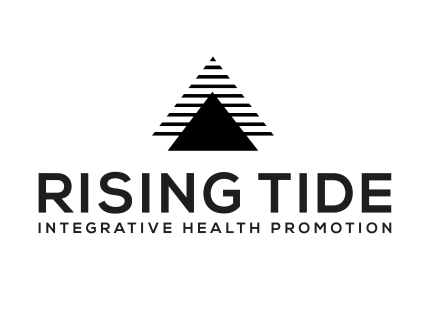rising tide
integrative health promotion
%
Canadian first responders reporting symptoms of depression in 2020.
%
Canadian first responders reporting symptoms of PTSD in 2020.
%
Higher chance of cardiac events in first responders.
Canadian first responders who died by suicide in 2018.
the
problem
Emergency responders, including police officers, firefighters, and paramedics, face significant mental and physical health challenges on a daily basis. These challenges can include exposure to traumatic events, long hours, shift work, and physical demands that can result in chronic pain and injury.
Perhaps the most concerning challenge faced by emergency responders is the high rate of mental health issues, including post-traumatic stress disorder (PTSD), depression, and anxiety. These issues can be caused or made worse by exposure to traumatic events, such as accidents, disasters, or violence. Unfortunately, emergency responders often face stigma and reluctance to seek help, which can further exacerbate mental health problems.
In addition to mental health challenges, emergency responders are also at increased risk for chronic diseases such as cardiovascular disease, diabetes, and cancer. The nature of their work, including long hours and exposure to hazardous materials, can contribute to these health problems. Furthermore, the physical demands of the job can result in chronic pain and injury, which can impact both mental and physical health.
Overall, the mental and physical health challenges faced by emergency responders are significant and can have long-lasting effects on their well-being. It is crucial for employers and society as a whole to recognize these challenges and work to provide the necessary support and resources to ensure that emergency responders can continue to serve and protect our communities.
a health promotion
solution
%
A 2019 study published in the Journal of Occupational and Environmental Medicine found that a workplace health promotion program that included stress management interventions was effective in improving the psychological health of police officers. Officers who completed the program reported significant improvements in their mental health, including a 42% reduction in symptoms of anxiety and depression.
%
According to a 2020 report by the Mental Health Commission of Canada, several police services in Canada have implemented peer support programs for their officers. One police service reported that officers who participated in the program had a 50% reduction in mental health-related absences from work.
%
According to a 2018 report by the National Institute of Justice, a police department in Texas implemented a program that provided officers with training in mindfulness and emotional intelligence. Officers who completed the program reported significant improvements in their psychological health, including a 56% reduction in symptoms of PTSD.
%
According to a 2019 report by the International Association of Chiefs of Police, a police department in Lee's Summit, Missouri implemented a program that provided officers with access to a confidential counseling service. The department saw a 67% reduction in lost work days due to mental health issues.
A 2020 study published in the Journal of Occupational Health Psychology found that a mindfulness-based resilience training program was effective in reducing symptoms of PTSD and depression among police officers. Officers who completed the program reported a significant reduction in symptoms of PTSD and depression, as well as an increase in resilience and job satisfaction.
-
Violanti, J. M., et al. (2019). A randomized controlled pilot study of a holistic wellness intervention for law enforcement. Journal of Occupational and Environmental Medicine, 61(10), 832-840. doi: 10.1097/JOM.0000000000001656
Health promotion is a process that enables people to take control of their health and improve their well-being. It involves creating a healthy workplace environment that empowers individuals to make positive choices for their health. Health promotion can include various activities such as education, behavior change, community engagement, and policy development.
For emergency service personnel, health promotion can offer significant benefits to their physical and mental health. Emergency responders face unique challenges in their work, including exposure to traumatic events, long work hours, and physical demands. Health promotion strategies can help emergency responders manage these challenges and maintain good health.
By investing in health promotion programs for emergency service personnel, employers can support their employees’ well-being and productivity. Providing stress management strategies and mental health support can help emergency responders cope with the high-stress situations they encounter on the job and prevent mental health conditions like depression and post-traumatic stress disorder (PTSD). Additionally, promoting healthy eating and physical activity programs can help emergency responders maintain good physical health, reduce the risk of chronic diseases, and prevent workplace injuries.
Moreover, investing in health promotion not only benefits emergency responders but also has broader societal benefits. Healthy and resilient emergency responders are better able to serve and protect our communities, reducing the risk of injury and illness on the job. By investing in health promotion, we can create a healthy and productive workforce and promote the safety and well-being of our communities. Contact Tacey today to discuss how Rising Tide IHP can elevate your team’s health and wellbeing.
